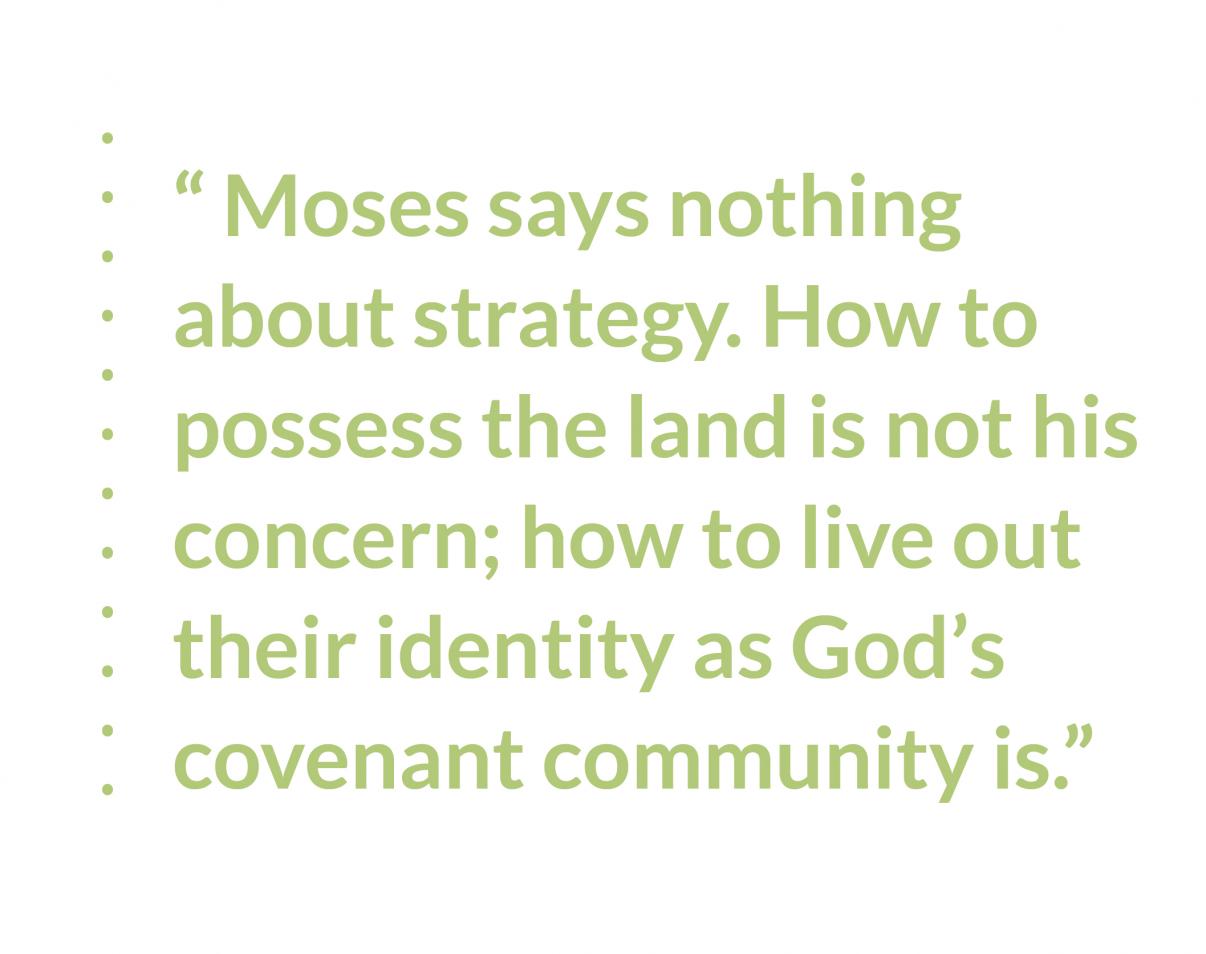
Living As The People Of God
It is one thing to be called the People of God; but what does it mean to live as God’s people? At the beginning of Deuteronomy, Israel stands ready to enter the Promised Land, where they will have to work this out in practice. They failed at the first time of asking; now, 38 years later, a new generation awaits. Will they grasp the opportunity this time?
Words Matter 
Moses’ final contribution to Israel is a series of sermons from the plains of Moab (recorded in Deuteronomy) which aim to prepare them for their new context. Eugene Peterson comments ‘A sermon changes words about God into words from God. It takes what we have heard or read of God and God’s ways and turns them into a personal proclamation of God’s good news’ (pg 249).
Words. Not just any words, but God’s words. To us. Today. Devarim is the name of the book; in Hebrew - Words. We are not standing at the Jordan, but we do face an uncertain future and a radically different present; both bring new missionary challenges (at home and abroad). My fear is that we simply look for the latest strategy that, if implemented correctly, will provide us with perceived success. But strategies come and go; what works in one context will not necessarily work elsewhere; today’s major mission challenges may be a footnote in 20 years. Moses says nothing about strategy. How to possess the land is not his concern; how to live out their identity as God’s covenant community is.
Listening Matters
What would Moses say to us today? Firstly, we must be a listening community. The word listen, shema, appears over 90 times in Deuteronomy. Jonathan Sacks makes an interesting observation that ‘there is no verb in biblical Hebrew that means to obey’ (pg 66). The closest equivalent is shema, to listen. We see this in verses like 5:1 where the command to ‘listen’ to God’s statutes is immediately followed by ‘be careful to do them’. The implication for obedience is the same; what is different is the tone.
In the central declaration of Judaism (6:4-6), the command to listen is immediately followed by the command to love. They cannot be separated; Chris Wright insists that ‘In Deuteronomy, the command to love is so often linked with the command to obey… that the two terms are virtually synonymous’ (pg 98). Should we ever be tempted to separate them, Peterson warns us that ‘Believing without loving turns the best of creeds into a weapon of oppression’ (pg 261). So then, this is not some edict from above or the narrow imposition from a priestly elite; it is the language of intimacy.
It is not a one-off declaration but an on-going conversation with the One who guides and knows best. It does not just affirm the what but explains the why and the how. We must recover our identity as a listening community but my fear is that today’s church is better prepared to study, dissect and analyse the Word than listen.
Remembering Matters
Secondly, there are repeated calls for Israel to remember, or conversely to be careful ‘lest you forget’. Sacks argues that Moses prophetically saw that ‘the real test of a nation is not if it can survive a crisis but if it can survive the lack of a crisis’ (pg 89). It is often during times of affluence or the absence of outside threats that we forget what brought us to this point and decadence takes root. Sacks goes on to affirm ‘Civilisations begin to die when they forget’ (pg91). This is true of churches too. Moses, aware of this, warns Israel in advance. One of the central pillars of Christian communal worship is an act of remembrance through participation in the Lord’s Table. This highlights who God is and what he has done, as well as our position previously without him and therefore the constant reminder of our daily dependence on his grace (see 6:21). We need to beware lest we forget, and in so doing begin to die.
Mission Matters
As we seek to recover these two essential elements of being God’s people, Deuteronomy also reminds us of two groups that must constantly be in our minds.
Firstly, Israel’s ability to listen was not just for her own benefit. Moses reminds them (4:6) that they will live in sight of ‘the peoples’. Chris Wright reminds us: ‘Israel existed for the ultimate purpose of being the vehicle of God’s blessing of the nations’ (pg 48). Our active listening (evidenced by our active living) is central to our identity as God’s people, which is central to our missionary purpose in today’s world.
Secondly, Moses insists on the prerogative of preparing the next generation (eg. 6:7; 11:19). ‘To remember’ is about passing on who we are to the next generation (physically and spiritually), showing them how to truly listen to God, modelling our identity as God’s people, emphasising our missionary nature.
Source/ Further Reading:
Christ Plays in Ten Thousand Places, Eugene Peterson. Wm B Eerdmans, 2005.
Deuteronomy: Renewal of the Sinai Covenant, Jonathan Sacks. Maggid Books, 2019.
Deuteronomy, Chris Wright. Paternoster Press, 1996.



